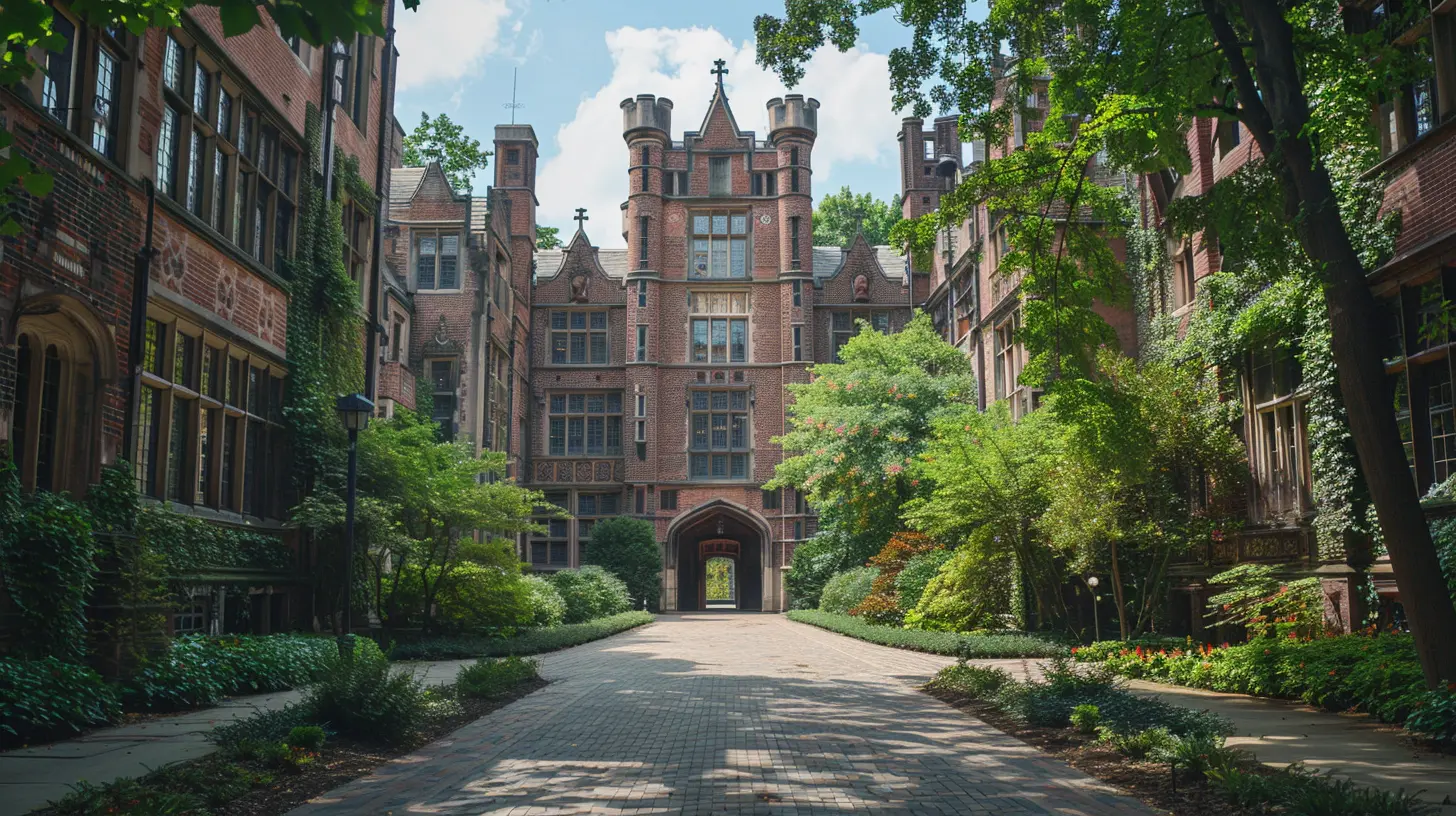Exploring the Differences Between Public and Private Universities
30 October 2025
Choosing the right university is a big decision, and one of the first things you’ll need to consider is whether a public or private university is the best fit for you. Both have their unique advantages and potential drawbacks, depending on your academic goals, financial situation, and personal preferences.
In this guide, we’ll break down the key differences between public and private universities so you can make an informed decision that’s right for your future.

1. Understanding Public and Private Universities
Before diving into the nuances, let’s establish a basic understanding of what distinguishes these institutions.What is a Public University?
Public universities are funded primarily by state or federal government resources. This funding allows them to offer lower tuition rates, especially for in-state students. Public universities tend to be larger, offer a broad selection of degree programs, and prioritize accessibility and affordability.What is a Private University?
Private universities, on the other hand, do not receive funding from the government. Instead, they rely on tuition, donations, and endowments to operate. As a result, tuition is generally higher, but these universities often offer smaller class sizes, specialized programs, and more personalized attention for students.
2. Key Differences Between Public and Private Universities
1. Tuition and Financial Aid
One of the biggest concerns for students and their families is cost.Public Universities:
- Generally, public universities have significantly lower tuition fees, especially for in-state students.
- Out-of-state students, however, often face much higher tuition costs, sometimes comparable to private institutions.
- Financial aid and scholarships are available, but may not be as generous as those at private schools.
Private Universities:
- Tuition at private universities is usually higher due to the lack of government funding.
- However, private schools tend to offer more generous financial aid packages and scholarships based on merit or need.
- Some prestigious private universities have large endowments, enabling them to provide students with substantial financial support.
Which is Better?
If affordability is your top priority, public universities are usually the better choice. However, private schools often offer generous aid that might make them just as affordable, if not cheaper, than certain public institutions. Always compare aid packages before making a decision!
2. Class Size and Student-to-Faculty Ratio
Public Universities:- Tend to have large student populations, sometimes exceeding 30,000+ students.
- Lecture halls with hundreds of students are common, making it harder to get personal attention from professors.
- Stronger emphasis on independence and self-learning.
Private Universities:
- Generally, private universities have smaller class sizes, often with a low student-to-faculty ratio.
- This allows for more personalized attention from professors, better networking opportunities, and extensive mentorship.
Which is Better?
If you prefer individualized learning and close relationships with professors, a private university might be a better fit. But if you thrive in a larger, more independent environment, a public university could work just fine.
3. Academic Programs and Opportunities
Public Universities:- Offer a wider variety of programs and majors due to their large enrollment numbers.
- Have more research opportunities, particularly in STEM fields.
- Often host renowned faculty and extensive resources, making them excellent choices for certain majors.
Private Universities:
- Some private universities focus on specialized programs, making them great for students who have specific academic interests.
- Many private schools emphasize liberal arts education, which encourages well-rounded learning.
- There’s often an emphasis on prestige and exclusivity, making them desirable for networking and job placement.
Which is Better?
Public universities offer a more extensive selection of degrees, while private universities often provide more specialized programs. If you know what you want to study and need a particular major, check if both types of schools offer it before deciding.
4. Campus Life and Extracurricular Activities
Public Universities:- Often have larger, more diverse student bodies, providing a wide range of extracurricular activities, clubs, and sports teams.
- Major public universities frequently offer Division I athletics, which can be a huge draw for sports enthusiasts.
- More varied social experiences due to their larger size.
Private Universities:
- May have fewer extracurricular programs, but some private schools still offer Division I or II sports.
- The campus community tends to be tighter-knit, fostering strong relationships among students.
- Often emphasize traditions, alumni connections, and school pride.
Which is Better?
If you love large-scale sporting events, big public universities are the way to go. However, if you’re looking for a more tight-knit community where you can build strong, lasting friendships, private universities might be a better fit.
5. Prestige, Reputation, and Career Opportunities
Public Universities:- Many top-tier public universities (e.g., UCLA, University of Michigan, UC Berkeley) have excellent reputations.
- Employers recognize degrees from strong public universities and value the diversity of experiences students bring.
Private Universities:
- Some private universities (e.g., Ivy League schools like Harvard, Yale, Princeton) have immense prestige.
- Graduating from a well-known private institution can provide strong networking opportunities and increase job prospects.
Which is Better?
If prestige matters for your career, attending a top private university could provide an edge. However, public universities also offer strong networking opportunities, especially in certain fields like business, engineering, and technology. 
3. Pros and Cons Summary
| Factor | Public Universities | Private Universities ||--------|-----------------|-----------------|
| Tuition Cost | Lower (especially for in-state students) | Higher, but offset by scholarships & financial aid |
| Class Sizes | Larger, less individual attention | Smaller, more personalized learning |
| Program Variety | Wide range of programs & majors | Often specialized programs |
| Campus Life | Large student body, major sports, diverse activities | Smaller, tight-knit community |
| Prestige & Career Benefits | Top-tier public schools are well-respected | Often provide strong networking & brand recognition |

4. Choosing the Right University for You
So, how do you decide which type of university is right for you? Asking yourself the following questions can help:✅ What’s your budget?—If affordability is key, public universities generally offer lower tuition.
✅ Do you thrive in small or large learning environments?—Private schools offer smaller classes; public schools have larger lecture halls.
✅ What’s your desired major?—Check which schools provide the best program for your chosen field.
✅ Do you value networking and prestige?—Private universities may offer stronger career connections.
✅ Do you want a traditional college experience?—Public universities often provide a more vibrant campus life.
At the end of the day, both public and private universities offer excellent education opportunities. Your choice should depend on where you feel most comfortable and what aligns best with your goals.
Final Thoughts
Deciding between public and private universities isn’t always easy, but understanding the fundamental differences can help you make an informed choice. If you're someone who thrives in large environments, enjoys sports, and seeks affordability, a public university might be a better fit. However, if you prefer smaller class sizes, personalized learning, and strong networking opportunities, a private university could be the right path.Ultimately, no matter what you choose, your university experience will be what you make of it—so pick wisely and make the most of your higher education journey!
all images in this post were generated using AI tools
Category:
Higher EducationAuthor:

Bethany Hudson
Discussion
rate this article
1 comments
Corinne Holland
Public universities: where tuition is a rollercoaster and diversity reigns. Private universities: where exclusivity meets price tags that could fund a small nation. Both have their charms, but pick your poison wisely—your wallet will thank you later!
November 16, 2025 at 5:41 AM

Bethany Hudson
Thank you for your insightful comment! Both public and private universities offer unique experiences, and it's crucial for students to weigh their options carefully to find the best fit for their goals and finances.


